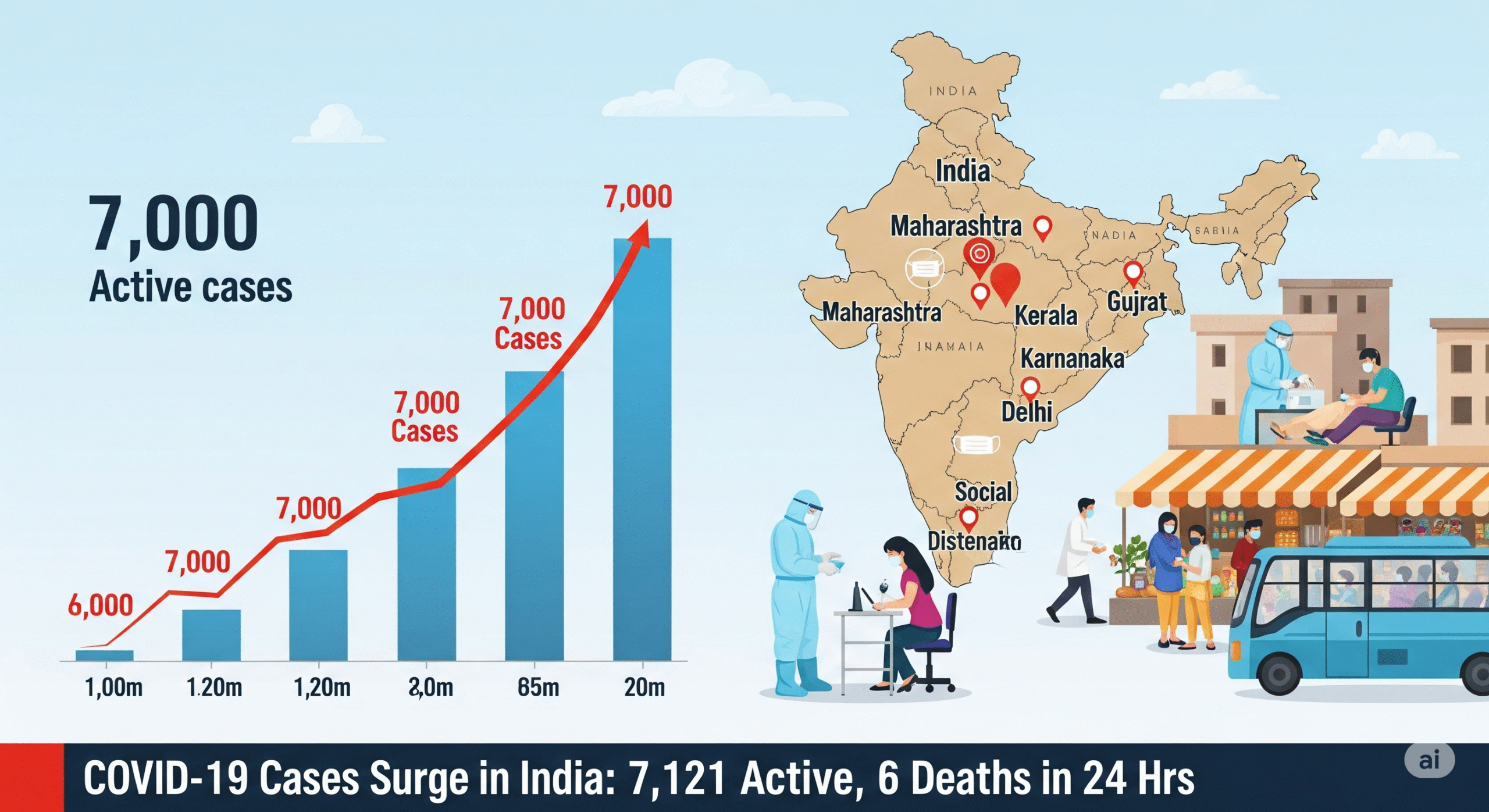India is witnessing a new surge in COVID-19 cases as active cases have now reached the 7,000 mark. In line with the Ministry of Health’s COVID dashboard, the country registered 7,151 active cases until Wednesday, June 11. This is a stark rise from only 257 active cases on May 22, with a consistent and alarming increase in recent weeks. Within the last 24 hours alone, 306 new cases were reported, while 929 patients recovered.
Death Toll and Regional Breakdown
At least six COVID-related deaths were recorded in the last 24 hours — three in Kerala, two in Karnataka, and one in Maharashtra. Health officials confirmed that most of the deceased had pre-existing medical conditions.
In Delhi, 66 new cases were detected, taking the active caseload in the national capital to 757. Fortunately, no COVID-related deaths have been reported in the city recently.
Maharashtra reported 107 fresh cases, taking its total for the year to 1,700. Two additional state COVID-19 fatalities raised the death toll to 21 since January.
In the northeast region, Manipur reported a case in this wave, a 23-year-old female resident of Bishnupur district who had come down with flu-like symptoms.
State Responses and Ministerial Updates
Gujarat, with more than 1,200 active cases, is still among the most hit states in this wave. Health Minister Rushikesh Patel highlighted that this variant seems less severe, but individuals need to remain vigilant and self-isolate if symptoms arise.
In Karnataka, Chief Minister Siddaramaiah expressed concern over private hospitals charging high fees for COVID-19 tests. He wanted strict monitoring and accountability.
Uttar Pradesh Deputy Chief Minister Brajesh Pathak appealed to people not to panic. “The symptoms are mild, primarily cold and fever. However, serious patients and elderly people should take care. We are well prepared — hospitals and oxygen plants are set,” he assured.
COVID-19 Safety Guidelines: How to Stay Safe
To keep yourself and others safe from COVID-19, the Health Ministry still advises the following safety measures:
- Wear masks in crowded and closed areas such as markets, buses, and offices.Wash hands frequently with soap or utilize alcohol-based hand rubs.
- Practice physical distancing — at least 6 feet apart from others when outdoors.
- Stay away from large gatherings, particularly if you are sick or have elderly/vulnerable family members.
- Get vaccinated and receive booster doses if it applies to you.
- Watch out for symptoms like fever, cough, sore throat, and loss of smell or taste — and self-isolate if necessary.
- Resort to teleconsultations or contact helplines if symptoms manifest rather than running to hospitals unnecessarily.
Social Impact and Future Precautions
One such issue that emerged from the long-term effect of the pandemic is a reported 70% increase in child labour, as per Virgil D’Sami, Convenor of the Campaign Against Child Labour (CACL). He called for an amendment to the laws permitting any type of child labour below 18.Health officials continue to emphasize that although the latest strain is milder, the virus still poses a threat — especially to elderly and those suffering from complications. Early precautions and the cooperation of the public are still instrumental in its prevention.








